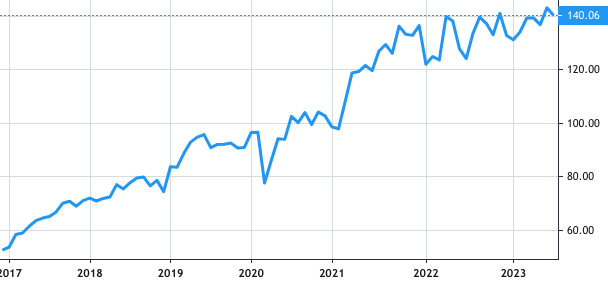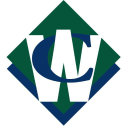About Waste Connections
Waste Connections, Inc. (Waste Connections) operates as a solid waste services company in North America.

The company provides non-hazardous waste collection, transfer and disposal services, along with resource recovery primarily through recycling and renewable fuels generation, in 43 states in the U.S. and six provinces in Canada. Waste Connections also provides non-hazardous oil and natural gas exploration and production, or E&P, waste treatment, recovery and disposal services in several basins across the U.S., as well as intermodal services for the movement of cargo and solid waste containers in the Pacific Northwest.
The company develops company-wide operating standards, which are tailored for each of its markets based on industry norms and local conditions. The company uses a wide-area information system network, implement financial controls and consolidate certain accounting, personnel and customer service functions.
Growth Strategy
The company tailors the components of its growth strategy to the markets in which it operates and into which it hopes to expand. The key elements of the company’s strategy are to obtain additional exclusive arrangements; generate internal growth; and expand through acquisitions.
Waste Services

Collection Services
The company provides collection services to residential, commercial, municipal, industrial and E&P customers. The company’s services are generally provided under one of the following arrangements governmental certificates; exclusive franchise agreements; exclusive municipal contracts; residential subscriptions; residential contracts; or commercial, industrial and E&P service agreements.
Governmental certificates, exclusive franchise agreements and exclusive municipal contracts grant the company rights to provide MSW services within specified areas at established rates and are long-term in nature. Governmental certificates, or G Certificates, are unique to the state of Washington and are awarded by the Washington Utilities and Transportation Commission, or WUTC, to solid waste collection service providers in unincorporated areas and electing municipalities. These certificates typically grant the holder the exclusive and perpetual right to provide specific residential, commercial and/or industrial waste services in a defined territory at specified rates, subject to divestiture and/or overlap or cancellation by the WUTC on specified, limited grounds. Franchise agreements typically provide an exclusive period of seven years or longer for a specified territory; they specify a broad range of services to be provided, establish rates for the services and can give the service provider a right of first refusal to extend the term of the agreement. Municipal contracts typically provide a shorter service period and a more limited scope of services than franchise agreements and generally require competitive bidding at the end of the contract term. In markets where exclusive arrangements are not available, the company may enter into residential contracts with homeowners’ associations, apartment owners and mobile home park operators, or work on a subscription basis with individual households. In such markets, the company may also provide commercial and industrial services under customer service agreements generally ranging from one to five years in duration. Finally, in certain E&P markets with no pit rules or other regulations that limit on-site storage or treatment of waste, the company offers containers and collection services to provide a closed loop system for the collection of drilling wastes at customers’ well sites and subsequent transportation of the waste to its facilities for treatment and disposal.
Landfill Disposal Services
As of December 31, 2022, the company owned or operated 75 MSW landfills, nine E&P waste landfills, which only accept E&P waste and 16 non-MSW landfills, which only accept construction and demolition, industrial and other non-putrescible waste. Eight of the company’s MSW landfills also received E&P waste during 2022. The company generally owns landfills to achieve vertical integration in markets where the economic and regulatory environments make landfill ownership attractive. The company also owns landfills in certain markets where it is not necessary to provide collection services because that it is able to attract volume to its landfills, given its location or other market dynamics.
For landfills the company operates but do not own, the owner of the property, generally a municipality, usually holds the permit and it operates the landfill pursuant to a landfill operating agreement for a contracted term, which may be the life of the landfill. Where the contracted term is not the life of the landfill, the property owner is generally responsible for final capping, closure and post-closure obligations. The company is responsible for all final capping, closure and post-closure obligations at its operated landfills for which it has life-of-site agreements.
Based on remaining permitted capacity as of December 31, 2022, and projected annual disposal volumes, the average remaining landfill life for the company’s owned and operated landfills and landfills operated, but not owned, under life-of-site agreements, is estimated to be approximately 31 years. Many of the company’s existing landfills have the potential for expanded disposal capacity beyond the amount permitted. The company regularly considers whether it is advisable, in light of changing market conditions and/or regulatory requirements, to seek to expand or change the permitted waste streams or to seek other permit modifications. The company also monitors the available permitted in-place disposal capacity of its landfills on an ongoing basis and evaluate whether to seek capacity expansion using a variety of factors.
The company is seeking to expand permitted capacity at 10 of its landfills, for which it considers expansions to be probable.
Transfer Station Services
The company owns or operates MSW transfer stations and E&P waste transfer stations with marine access. Transfer stations receive, compact and/or load waste to be transported to landfills or treatment facilities via truck, rail or barge. They extend the company’s direct-haul reach and link collection operations or waste generators with distant disposal or treatment facilities by concentrating the waste stream from a wider area and thus providing better utilization rates and operating efficiencies.
Recycling Services
The company offers residential, commercial, industrial and municipal customers recycling services for a variety of recyclable materials, including compost, cardboard, mixed paper, plastic containers, glass bottles and ferrous and aluminum metals. The company owns and operates recycling operations and market collected recyclable materials to third parties for processing before resale. The majority of the recyclables the company processes for sale are paper products and are shipped to customers in the United States and Canada, as well as other markets, including Asia. Changes in end market demand as well as other factors can cause fluctuations in the prices for such commodities, which can affect revenue, operating income and cash flows.
Beneficial Reuse of Landfill Gas
The company develops, owns and operates projects for the beneficial reuse of landfill gas through its landfill network. As of December 31, 2022, the company had gas recovery systems at 55 of its landfills to collect methane, which can then be used to generate electricity for local households, fuel local industrial power plants or power alternative fueled vehicles. For 17 of these beneficial reuse projects, the processed gas is used to fuel electricity generators. The electricity is then sold to public utilities. For 10 of these projects, the landfill gas is processed to pipeline quality natural gas and sold to natural gas companies. In some cases, landfill gas generated at the company’s landfills qualifies as a renewable fuel for which renewable fuel credits may be available.
E&P Waste Treatment, Recovery and Disposal Services
E&P waste is a broad term referring to the by-products resulting from oil and natural gas exploration and production activity. These generally include waste created throughout the initial drilling and completion of an oil or natural gas well, such as drilling fluids, drill cuttings, completion fluids and flowback water; production wastes and produced water during a well’s operating life; contaminated soils that require treatment during site reclamation; and substances that require clean-up after a spill, reserve pit clean-up or pipeline rupture. E&P waste customers are oil and natural gas exploration and production companies operating in the areas that the company serves. E&P waste revenue is therefore driven by vertical and horizontal drilling, hydraulic fracturing, production and clean-up activity; it is complemented by other services, including closed loop collection systems and the sale of recovered products. E&P waste activity varies across market areas which are tied to the natural resource basins in which the drilling activity occurs and reflects the regulatory environment, pricing and disposal alternatives available in any given market.
The company provides non-hazardous E&P waste treatment, recovery and/or disposal services from a network of E&P waste landfills, MSW landfills that also receive E&P waste, E&P liquid waste injection wells and E&P waste treatment and oil recovery facilities. Treatment processes vary by site and regulatory jurisdiction. At certain treatment facilities, loads of flowback and produced water and other drilling and production wastes delivered by the company’s customers are sampled, assessed and tested by third parties according to state regulations. Solids contained in a waste load are deposited into a land treatment cell where liquids are removed from the solids and are sent through an oil recovery system before being injected into saltwater disposal injection wells or placed in evaporation cells that utilize specialized equipment to accelerate evaporation of liquids. In certain locations, fresh water is then added to the remaining solids in the cell to wash the solids several times to remove contaminants, including oil and grease, chlorides and other contaminants, to ensure the solids meet specific regulatory criteria that, in certain areas, are administered by third-party labs and submitted to the regulatory authorities.
Competition
The company’s competition includes three publicly-held solid waste companies, such as Waste Management, Inc.; Republic Services, Inc.; and GFL Environmental, Inc.
The company also competes in certain markets with publicly held and privately owned companies, such as Waste Management, Inc., Republic Services, Inc., Clean Harbors, Inc., Secure Energy Services Inc., Nuverra Environmental Solutions, Trinity Environmental Services, LLC, Ecoserv, Oilfield Water Logistics LLC and others.
Regulation
The environmental regulations that affect the company in the United States are generally administered by the Environmental Protection Agency, or the EPA, state environmental agencies, and other federal, state and local authorities having jurisdiction over its U.S. operations.
The environmental legislation affecting the company in Canada is administered by federal and provincial regulatory agencies, which have jurisdiction over certain aspects of its Canadian operations. The relevant Canadian federal environmental legislation that affects the company’s operations is administered by federal departments, such as Environment and Climate Change Canada. Provincial and local agencies and departments administer their own environmental legislation, such as the Ontario Ministry of the Environment, Conservation and Parks.
The Resource Conservation and Recovery Act of 1976 requires tank registration, compliance with technical standards for tanks, release detection and reporting and corrective action, among other things. Certain of the company’s facilities and operations are subject to these requirements, which are typically implemented at the state level and may be more stringent in certain states.
If certain materials, such as run-off, collected leachate, or other contaminants from the company’s owned or operated facilities, including landfills, transfer stations, or other facilities, are discharged into streams, rivers or other regulated waters, the Clean Water Act requires a discharge permit.
Various states in which the company operates have been delegated authority to implement the Clean Water Act (Federal Water Pollution Control Act of 1972) and its permitting requirements, and some of these states have adopted regulations that are more stringent than federal Clean Water Act requirements, including regulating discharges to state waters in addition to Waters of the United States.
The company’s United States E&P underground injection operations are subject to, among other laws, the Safe Drinking Water Act, as well as analogous state laws and regulations.
History
Waste Connections, Inc. was founded in 1997.

 Stock Value
Stock Value

